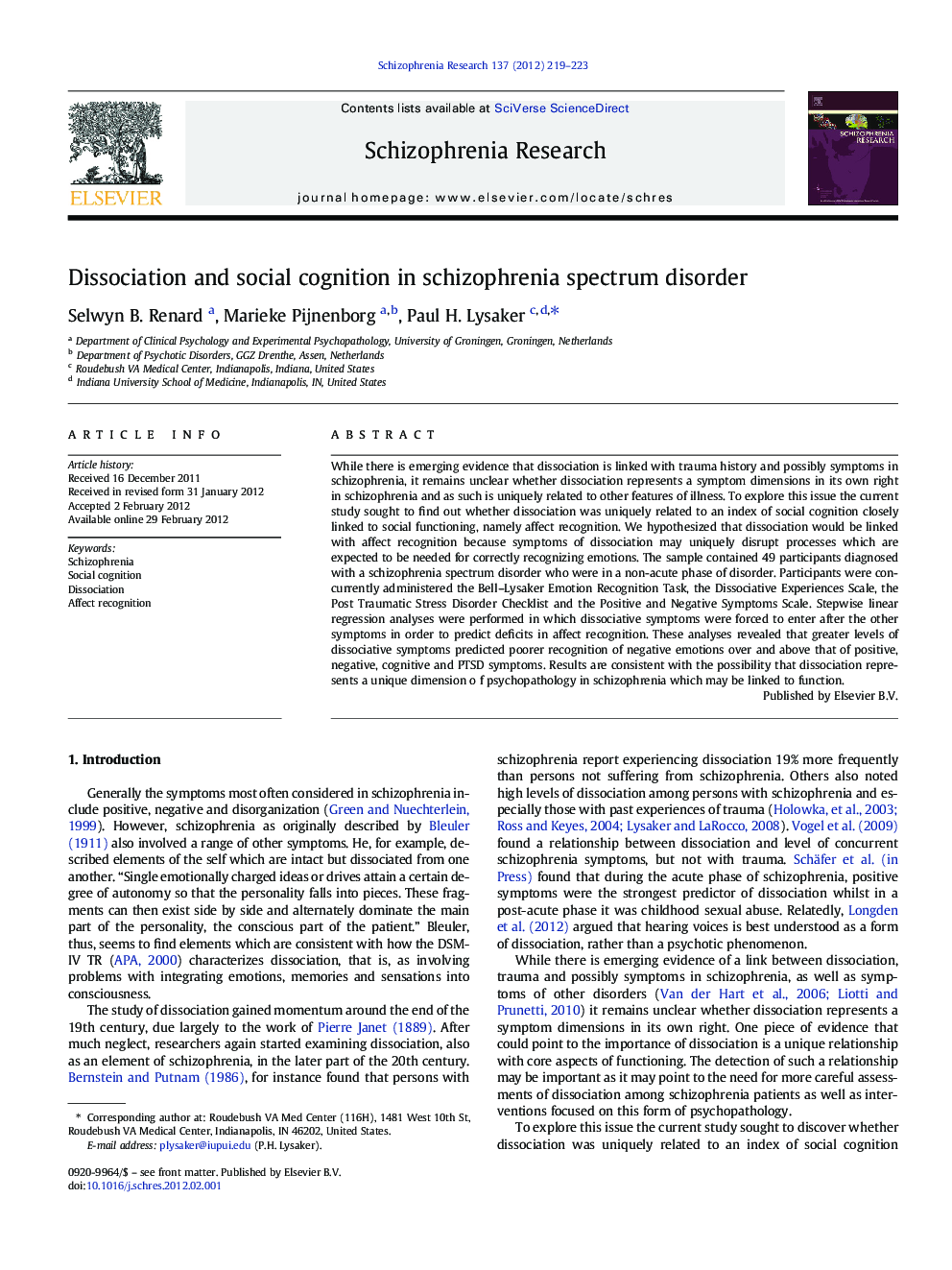| Article ID | Journal | Published Year | Pages | File Type |
|---|---|---|---|---|
| 6827099 | Schizophrenia Research | 2012 | 5 Pages |
Abstract
While there is emerging evidence that dissociation is linked with trauma history and possibly symptoms in schizophrenia, it remains unclear whether dissociation represents a symptom dimensions in its own right in schizophrenia and as such is uniquely related to other features of illness. To explore this issue the current study sought to find out whether dissociation was uniquely related to an index of social cognition closely linked to social functioning, namely affect recognition. We hypothesized that dissociation would be linked with affect recognition because symptoms of dissociation may uniquely disrupt processes which are expected to be needed for correctly recognizing emotions. The sample contained 49 participants diagnosed with a schizophrenia spectrum disorder who were in a non-acute phase of disorder. Participants were concurrently administered the Bell-Lysaker Emotion Recognition Task, the Dissociative Experiences Scale, the Post Traumatic Stress Disorder Checklist and the Positive and Negative Symptoms Scale. Stepwise linear regression analyses were performed in which dissociative symptoms were forced to enter after the other symptoms in order to predict deficits in affect recognition. These analyses revealed that greater levels of dissociative symptoms predicted poorer recognition of negative emotions over and above that of positive, negative, cognitive and PTSD symptoms. Results are consistent with the possibility that dissociation represents a unique dimension o f psychopathology in schizophrenia which may be linked to function.
Related Topics
Life Sciences
Neuroscience
Behavioral Neuroscience
Authors
Selwyn B. Renard, Marieke Pijnenborg, Paul H. Lysaker,
